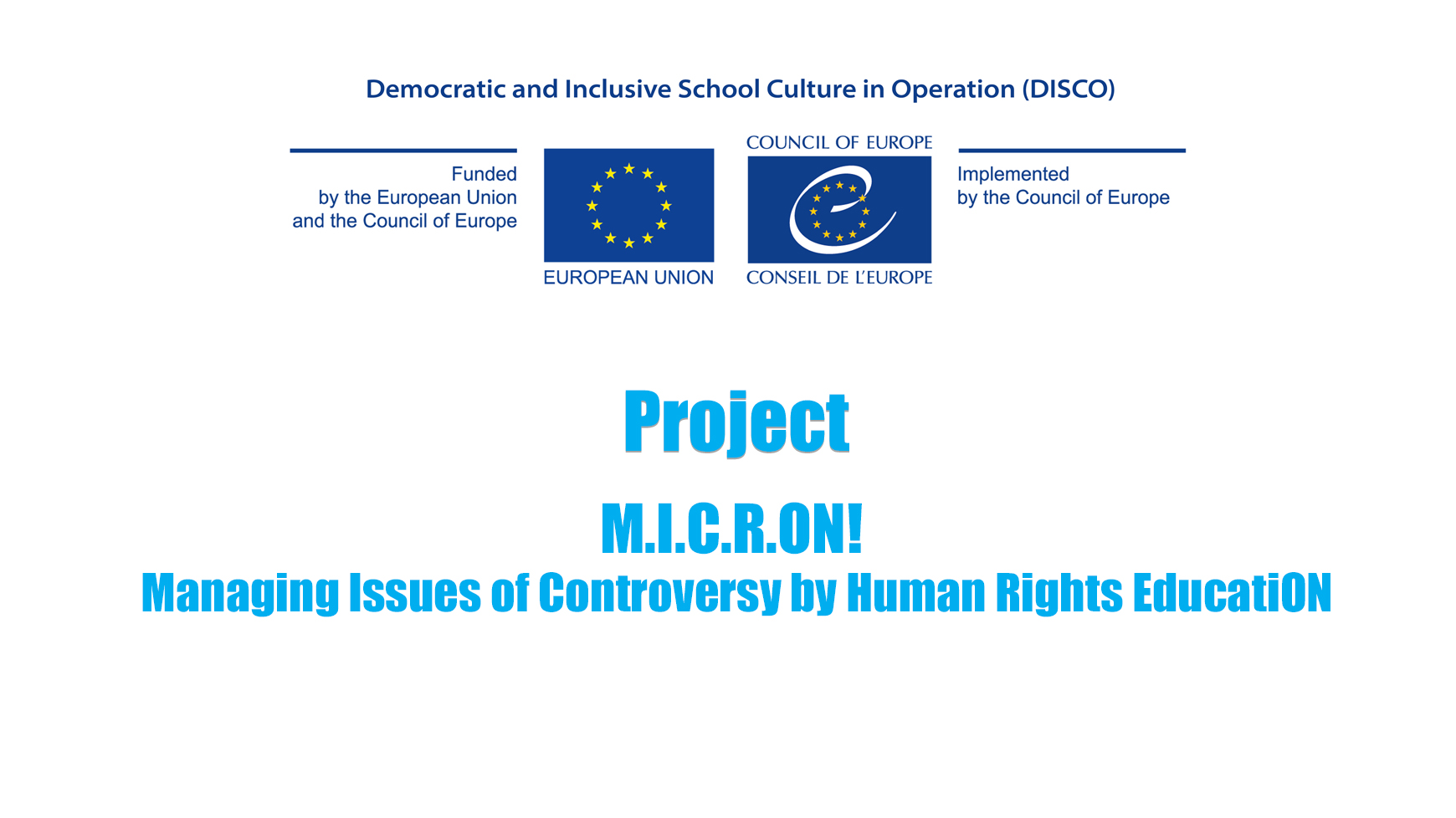M.I.C.R.ON! Managing issues of controversy by Human Rights EducatiON

Implementing organisation
- ANTIGONE Information and Documentation Centre on Racism, Ecology, Peace and NonViolence, Greece
Overall objective
-
To contribute to the development of an inclusive school community that respects diversity and that is guided by human rights principles and scope through reinforcing and promoting democratic citizenship and human rights education principles within the national educational community
Specific objectives
- To sensitize the educational community towards the principles of Education for Democratic Citizenship and Human Rights Education, particularly the issues that touch upon ‘the three Cs: curriculum, culture and community’
- To motivate and support the educational community to take action towards democratic citizenship and human rights education through the implementation of educational programmes on handling controversy
Outputs/Expected results
-
The Council of Europe Training Tool “Managing Controversy” is translated into Greek and is widely disseminated
-
Educational programmes for handling controversy and teaching controversial issues are developed and piloted in schools of five different regions of Greece with a high number of refugee and migrant population (Thessaloniki, Ioannina, Achaia, Heraklion and Lesvos)
-
Twenty-five educational programmes for handling controversy and teaching controversial issues are selected among the developed programmes and widely disseminated as best practices in Greece
The EU/Council of Europe Joint Programme "Democratic and Inclusive School Culture in Operation (DISCO)" is funded by the Council of Europe and the European Union and implemented by the Council of Europe. The opinions expressed by third parties in content on this website do not necessarily reflect the official views of the Council of Europe or the European Union. The Council of Europe and the European Union do not accept any responsibility for the content of any external sites over which the Council of Europe and the European Union have no control, including those representing projects and activities in individual member States and elsewhere. The information which they contain may not necessarily be complete, exhaustive, accurate or up to date. Any views expressed on those sites do not necessarily reflect the official opinion of the Council of Europe or the European Union.
